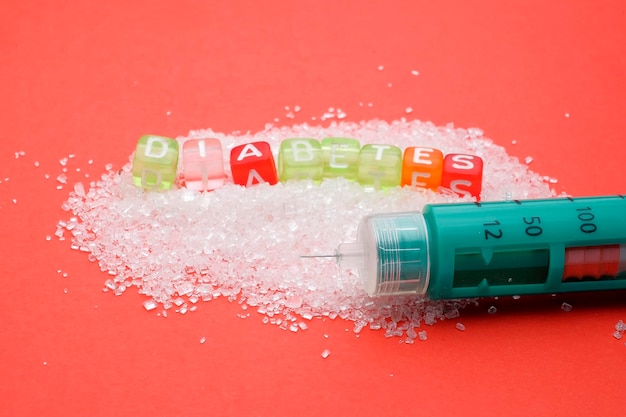The Shocking Truth About Artificial Sweeteners: Are They Really Safe?

The Truth About Artificial Sweeteners: Are They Really Safe for You? While marketed as a healthier alternative to sugar, the safety of artificial sweeteners remains a contentious topic, with ongoing debates about their potential impact on weight management, gut health, and long-term disease risk.
Are artificial sweeteners the sweet solution to your health woes, or a hidden danger lurking in your diet? Let’s uncover the truth about artificial sweeteners: Are they really safe for you?
Understanding Artificial Sweeteners: What Are They?
Artificial sweeteners are synthetic or processed substances used to sweeten foods and beverages without adding significant calories. They aim to provide a sugar-like taste, appealing to those looking to reduce their sugar intake for various reasons. However, the question of their safety has been a long-standing concern.
Types of Artificial Sweeteners
Several different artificial sweeteners are approved for use in the United States. Each has its own unique chemical structure and level of sweetness compared to sugar.
How They Differ from Sugar
Unlike sugar, artificial sweeteners are often hundreds or even thousands of times sweeter than sucrose (table sugar). This means that only a tiny amount is needed to achieve the desired sweetness. Their minimal caloric content and impact on blood sugar levels are major selling points.

Here are some key differences between artificial sweeteners and sugar:
- Caloric Content: Artificial sweeteners contribute little to no calories, whereas sugar is a significant source of calories.
- Impact on Blood Sugar: Artificial sweeteners generally do not raise blood sugar levels, unlike sugar.
- Sweetness Intensity: Artificial sweeteners are much more potent than sugar, so less is required.
In conclusion, artificial sweeteners offer a way to enjoy sweet tastes without the calories or blood sugar spikes associated with sugar, yet questions persist regarding their overall safety.
The Safety Question: What Does the Research Say?
The debate over the safety of artificial sweeteners has been ongoing for decades. Numerous studies have been conducted to assess their potential health effects—some with reassuring results, others raising concerns.
Approved Artificial Sweeteners: Regulatory Oversight
Artificial sweeteners approved for use in the United States have undergone rigorous testing by regulatory agencies like the Food and Drug Administration (FDA). These agencies establish acceptable daily intakes (ADIs) based on safety studies. But even with regulatory approval, concerns linger.
Conflicting Findings: A Mixed Bag
Research findings on artificial sweeteners are mixed. Some studies suggest no adverse effects when consumed within the ADI, while others point to potential risks. This inconsistency is a key source of the controversy.
Here are some key findings from various studies:
- Weight Management: Some research suggests artificial sweeteners might not be as effective for weight loss as once thought, possibly due to their impact on appetite and cravings.
- Gut Health: Emerging evidence indicates that artificial sweeteners can alter the gut microbiota, potentially affecting overall health.
- Long-Term Disease Risk: Some studies have associated artificial sweetener consumption with an increased risk of conditions like type 2 diabetes, although more research is needed.
Ultimately, the question of artificial sweetener safety is multifaceted. While regulatory bodies deem them safe within specified limits, ongoing research continues to explore potential long-term effects and health implications.
Artificial Sweeteners and Weight Management: A Complex Relationship
Artificial sweeteners are often marketed as tools for weight management, offering a calorie-free way to satisfy a sweet tooth. However, the relationship between artificial sweeteners and weight is more complex than it appears.
The Promise of Calorie-Free Sweetness
The primary appeal of artificial sweeteners for weight management is their lack of calories. By replacing sugar with a calorie-free alternative, individuals hope to reduce their overall energy intake and lose weight.
Potential Pitfalls: Appetite and Cravings
Some studies suggest that artificial sweeteners may not effectively reduce overall calorie intake. They may disrupt the body’s natural ability to regulate appetite, potentially leading to increased cravings for sweet foods.

Impact on Metabolism
Research has explored whether artificial sweeteners can affect metabolism. Some studies suggest they might interfere with metabolic processes, potentially making it harder to lose weight.
Here’s a summary of the potential impacts on weight management:
- Reduced Calorie Intake: Initially, artificial sweeteners can help reduce calorie consumption.
- Disrupted Appetite Regulation: They may interfere with the body’s natural hunger and fullness cues.
- Metabolic Effects: Some research suggests potential metabolic disturbances.
In summary, while artificial sweeteners can be a tool for reducing calorie intake, their complex interactions with appetite regulation and metabolism mean their role in weight management is not straightforward.
The Gut Microbiome: Do Artificial Sweeteners Disrupt Our Inner Ecosystem?
The gut microbiome, the complex community of microorganisms living in our digestive tract, plays a crucial role in health. Emerging research suggests that artificial sweeteners can impact this delicate ecosystem.
The Gut Microbiome’s Role in Health
The gut microbiome influences digestion, nutrient absorption, immune function, and even mental health. Disruptions in the microbiome have been linked to various health problems.
Artificial Sweeteners’ Impact on Gut Bacteria
Studies have shown that artificial sweeteners can alter the composition and function of gut bacteria. Some sweeteners may reduce the diversity of beneficial bacteria or promote the growth of harmful bacteria.
Potential Health Consequences
Changes in the gut microbiome due to artificial sweeteners could potentially contribute to metabolic disorders, inflammation, and other health issues. More research is needed to fully understand these effects.
Here are key insights on the impact on the gut microbiome:
- Altered Gut Composition: Artificial sweeteners can change the types and amounts of bacteria in the gut.
- Disrupted Gut Function: These changes can affect how the gut functions and its overall health.
- Broader Health Implications: Gut microbiome disruptions can have wide-ranging health consequences.
In conclusion, artificial sweeteners can have notable effects on the gut microbiome, potentially influencing overall health and well-being.
Artificial Sweeteners and Diabetes: Is There a Link?
Given that artificial sweeteners are often used by individuals with diabetes as a sugar substitute, it’s important to explore whether there is a link between their consumption and the risk of developing diabetes.
Use as a Sugar Substitute for Diabetics
Artificial sweeteners are commonly used by people with diabetes to manage their blood sugar levels. They provide sweetness without the rapid blood sugar spikes associated with sugar.
Increased Risk of Type 2 Diabetes?
Some observational studies have suggested a potential link between artificial sweetener consumption and an increased risk of type 2 diabetes. However, the evidence is not conclusive, and other factors may play a role.
Potential Mechanisms
Possible explanations for the observed association include changes in gut bacteria, altered glucose metabolism, and reverse causality (i.e., people at risk of diabetes may be more likely to use artificial sweeteners).
Key points to consider:
- Blood Sugar Control: Artificial sweeteners can help manage blood sugar levels in the short term.
- Observational Studies: Some studies suggest an increased risk of type 2 diabetes, but the evidence is not definitive.
- Underlying Mechanisms: The relationship could involve changes in the gut microbiome or other metabolic effects.
In summary, while artificial sweeteners can be useful for blood sugar control, the potential link between their consumption and the risk of developing type 2 diabetes warrants further investigation.
Navigating the Sweetener Landscape: Making Informed Choices
Given the complex information surrounding artificial sweeteners, making informed choices about their consumption can be challenging. Here are some practical tips.
Read Labels Carefully
Pay attention to the ingredients list on packaged foods and beverages. Artificial sweeteners are often found in products labeled as “diet,” “sugar-free,” or “low-calorie.”
Consider Natural Alternatives
Explore natural sweeteners like stevia, erythritol, and monk fruit, which may be less processed and have fewer potential side effects. However, these alternatives should still be used in moderation.
Moderate Consumption
Regardless of the type of sweetener you choose, moderation is key. Avoid excessive consumption of any sweetener, whether artificial or natural.
Here is some guidance for making informed choices:
- Awareness: Be aware of the types of sweeteners you are consuming.
- Alternatives: Consider natural options as possible substitutes.
- Balance: Practice moderation to minimize potential risks.
In conclusion, making informed choices about sweeteners involves understanding the available options, reading labels carefully, and practicing moderation. By doing so, you can enjoy sweetness responsibly.
| Key Point | Brief Description |
|---|---|
| 🍬 Types of Sweeteners | Artificial, natural, and sugar alcohols each have unique properties. |
| ⚖️ Weight Management | Effects on weight are complex; may not always lead to weight loss. |
| 🦠 Gut Microbiome | Can alter gut bacteria, impacting digestion and overall health. |
| 🩺 Diabetes Risk | Some studies suggest a link to increased risk of type 2 diabetes. |
Frequently Asked Questions About Artificial Sweeteners
For most people, artificial sweeteners are considered safe when consumed within the acceptable daily intake levels set by regulatory agencies like the FDA. However, individuals with certain medical conditions, such as phenylketonuria (PKU), need to avoid specific sweeteners like aspartame.
Artificial sweeteners can potentially aid weight loss by reducing calorie intake. However, some studies suggest that they may not be as effective as once thought due to their potential impact on appetite and metabolism. It’s best to use them as part of a balanced diet and exercise plan.
In general, artificial sweeteners do not significantly raise blood sugar levels, making them a popular choice for individuals with diabetes. However, it’s important to monitor individual responses, as some people may experience slight blood sugar variations depending on the type and amount of sweetener consumed.
Natural sweeteners, like stevia and monk fruit, are often considered healthier alternatives to artificial sweeteners because they are derived from natural sources. However, it’s crucial to use them in moderation and be aware of potential side effects. Each type of sweetener has its own pros and cons to consider.
Some people may experience side effects from artificial sweeteners, such as digestive issues, headaches, or allergic reactions. These side effects can vary depending on the individual and the specific sweetener consumed. If you suspect you’re experiencing side effects, it’s best to consult with a healthcare professional.
Conclusion
In conclusion, while artificial sweeteners offer a calorie-free alternative to sugar, their potential health effects remain a subject of ongoing research and debate. Making informed choices about sweetener consumption involves considering individual health goals, reading labels carefully, and practicing moderation to minimize potential risks and promote overall well-being.
